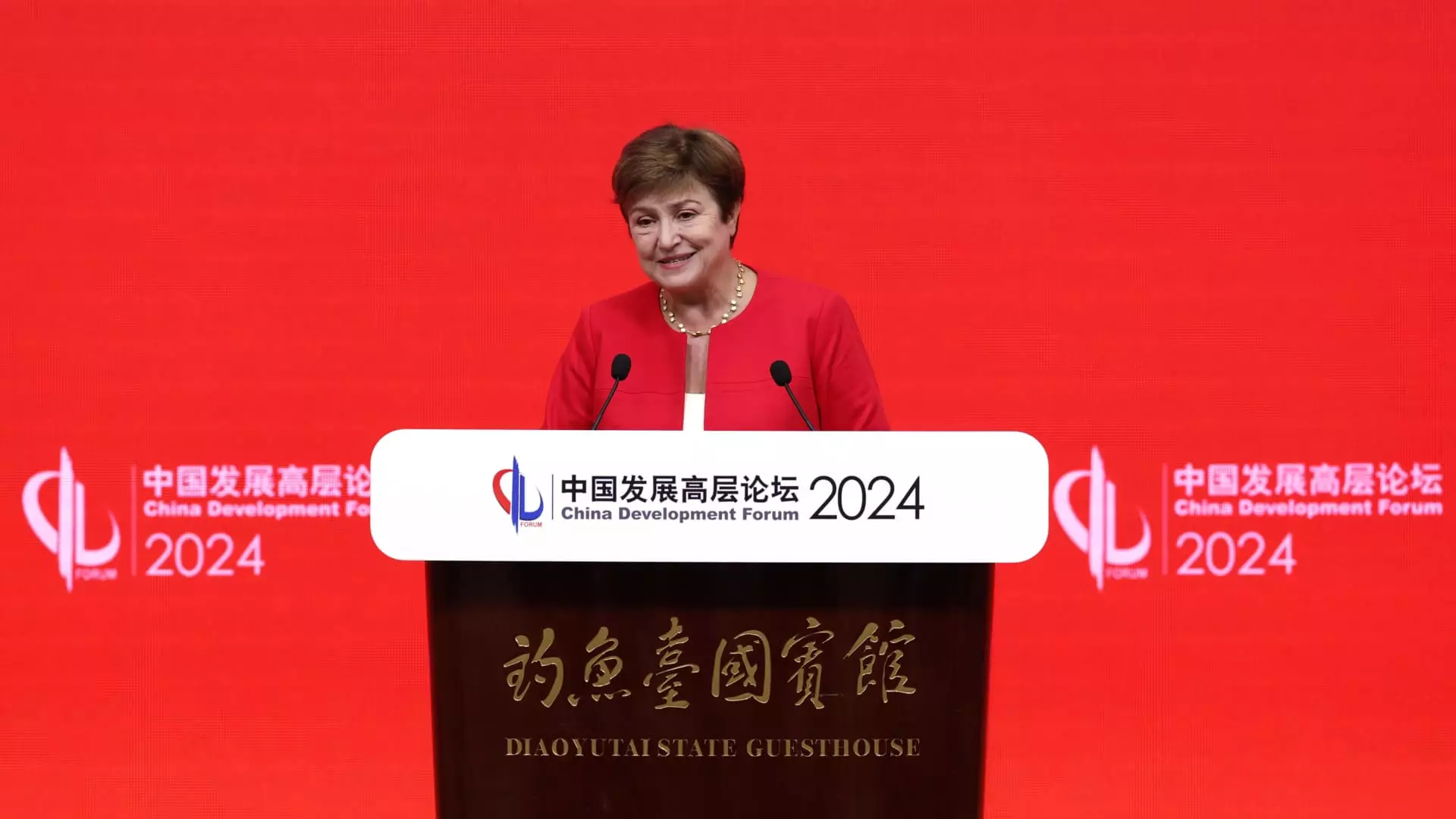The International Monetary Fund’s Managing Director, Kristalina Georgieva, painted a grim picture for China at the China Development Forum in Beijing. She stated that China is currently at a crossroads, faced with the decision to either stick to its old economic policies or implement reforms to stimulate growth. The IMF believes that with a comprehensive package of pro-market reforms, China could experience significant economic growth that would outpace the status quo scenario. This growth could potentially lead to a 20% expansion of the real economy over the next 15 years, equivalent to adding US$3.5 trillion to the Chinese economy. Despite a post-Covid rebound that saw growth exceeding 5% in 2023, China is still grappling with issues such as low productivity growth and an aging population, according to Georgieva.
The China Development Forum, a two-day event that started on Sunday, brings together over 100 foreign participants, including CEOs of major overseas firms and leaders of international organizations like the IMF and World Bank. During the forum, Chinese Premier Li Qiang pledged to promote “high-quality development,” intensify macro-policy adjustments, expand domestic demand, and enhance the level of openness in the country. This commitment comes at a time when China is facing challenges such as a slowdown in overseas investment flows and the need to boost confidence among foreign investors and businesses.
Despite the optimistic tone set at the forum, China is still struggling to meet its growth target of around 5% in 2023. The government has acknowledged that achieving this target will not be easy, especially in the face of ongoing issues such as overcapacity, faltering price pressures, a property crisis, and mounting debt. Georgieva, in her address at the World Economic Forum in Davos, had already warned about the short- and long-term challenges facing China, emphasizing the need for structural reforms to spur growth and increase domestic consumption and confidence.
Looking ahead, the IMF predicts that China’s economy will grow by 4.6% in 2024, highlighting the need for continued reforms to address real estate challenges and local government debt risks. One of the most pressing near-term challenges identified by Georgieva is the need to transition the property sector to a more sustainable footing and reduce risks stemming from local government debt. To overcome these challenges, China must take decisive steps to complete unfinished housing projects left by bankrupt developers and mitigate risks associated with local government debt. By doing so, the country can accelerate the resolution of current problems in the property sector and bolster consumer and investor confidence in the economy.
China finds itself at a critical juncture where tough decisions must be made to ensure sustainable growth and economic stability. The choices made in the coming years will not only impact China’s economy but also have far-reaching implications for the global economic landscape. As China navigates through these challenges, it must prioritize reforms that promote innovation, efficiency, and sustainable development to secure a prosperous future for its citizens and maintain its position as a key contributor to global economic growth.

Leave a Reply